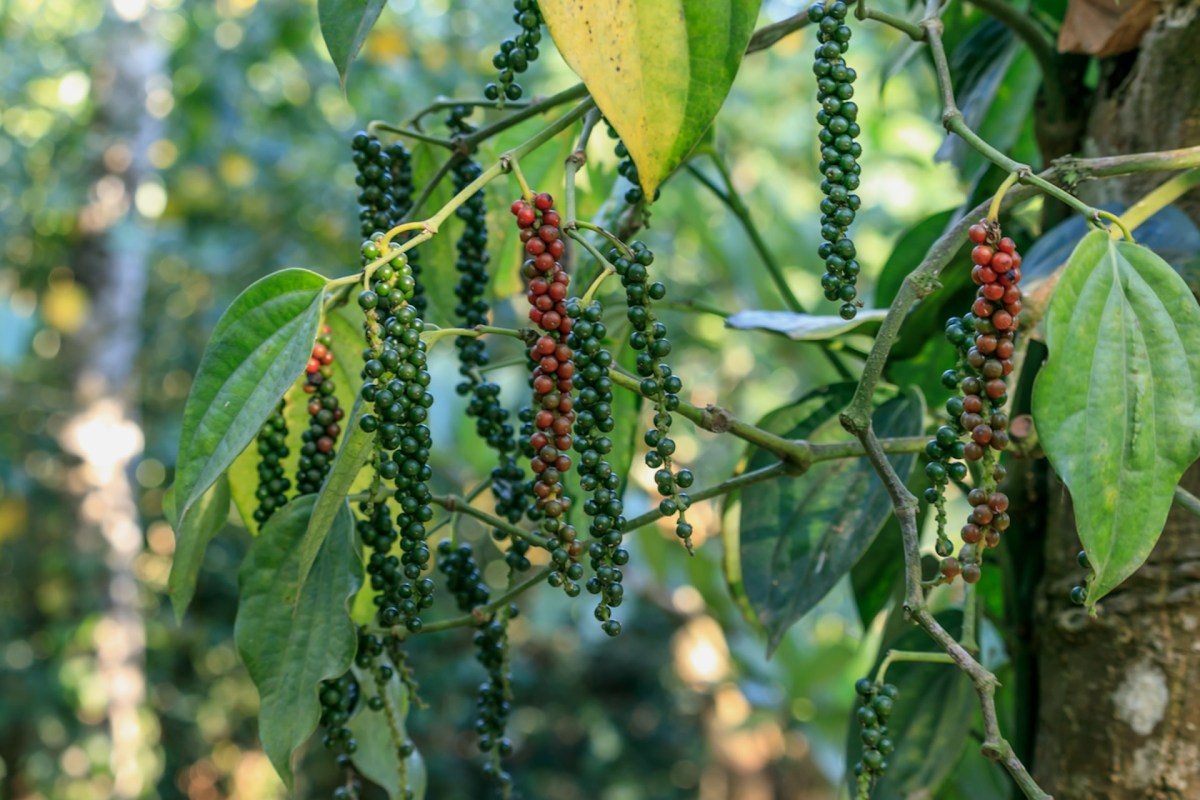Pepper is the latest kitchen staple under threat from extreme weather events.
What's happening?
Prices of the popular spice are expected to rise later this year because of various conditions and farmers' shifts to more lucrative crops, The Star reported Jan. 2.
In Brazil, pepper production has fallen 15% year over year, per Tridge, as a result of exceptionally dry weather caused by El Niño, while Vietnam has been hurt by heavy rain and growers who are turning to cocoa.
The Star noted the Vietnam Pepper and Spice Association is concerned "about the yield and even potential failure for the next crop harvest in 2024." The country, which produces 40% of the global supply, dipped into reserves last year to export about 286,600 tons. This year's yield is expected to drop by 9.1% to 18.2% from approximately 242,500 tons in 2023.
Pepper production was also down in Indonesia and Malaysia last year and is expected to sink further, as cocoa, palm oil, and durian have become more popular among farmers.
"It is easy to cultivate oil palm, which provides monthly income (from sales of fresh fruit bunches) unlike pepper, which growers can harvest only once a year," William S.C. Yii, director for leading Malaysian pepper trading firm Nguong Aik (Kuching) Sdn Bhd, said.
Why is this concerning?
Rising global temperatures and other climate-related changes are causing problems all over the world. In the Southern United States, crawfish are at risk. Olive oil, wheat, barley, and fruit are among the at-risk European crops. In Brazil and Vietnam, as well as Colombia, El Niño threatens coffee seeds.
Yii said "there is a strong possibility" pepper prices will follow those of rice, sugar, and most other commodities, which have risen in recent years. In Malaysia, pepper prices peaked in 2016. They rebounded some last year, with black and white pepper rising 11% and 3% from 2022.
"As there may be a global supply shortfall in 2024 due to reduced production by major producing countries, pepper prices are expected to be on an uptrend, rising gradually from the second half of the year (after the release of Vietnam's new crop into the market in first half of the year)," Yii said.
🗣️ When you're buying a kitchen appliance, which of these factors is most important to you?
🔘 Price 💰
🔘 Safety 🦺
🔘 Effectiveness ⚡
🔘 Style and appearance 💎
🗳️ Click your choice to see results and speak your mind
"After Vietnam, the new crop harvest will take place in Malaysia, Indonesia and Brazil. The next round of pepper price uptrend is expected to take two to three years to peak."
The Vietnam harvest began in February.
What's being done?
Technological developments are being used to protect food crops from increasingly frequent extreme weather and other issues. As the planet warms, floods, droughts, and wildfires worsen with changes to the global water cycle, per ScienceDaily. This is especially concerning because food insecurity is already a big problem.
Without massive divestment from dirty energy such as coal, oil, and gas, innovations such as low-water indoor farming and "40-meter pizzas" — which are actually seaweed — will have to carry the load.
Join our free newsletter for easy tips to save more, waste less, and help yourself while helping the planet.








